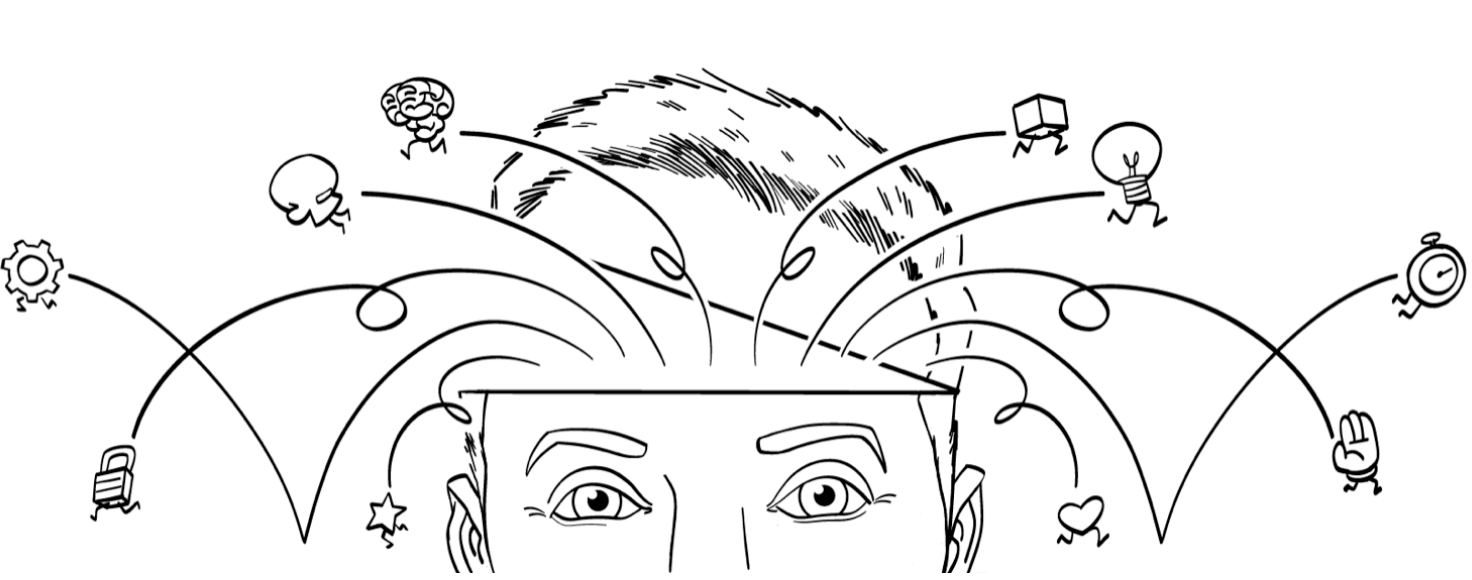Idea Surplus Disorder #13
In this edition, decision-making, healthy turnover, outsourced clarity, Zoom backgrounds, persuasion, flow, rest, and more.

Welcome to Idea Surplus Disorder. I’m Matt Homann, the founder of Filament, and I’m glad you’re here!
In this edition: decision-making, healthy turnover, outsourced clarity, Zoom backgrounds, persuasion, flow, rest, and more.
Things@Filament
Filament Focus Club: If you like to read business books, join us as we launch a unique book club at Filament on May 10th.
New Skills For Work (N.S.F.W.) is next Monday (April 24th), and we're going to learn some brainstorming best practices – including ways to incorporate AI tools to turbocharge your teams' ideation.
Ideas + Insights
I've been thinking a lot about Roger Martin's Responsibility Ladder. He suggests that to be an effective leader, there are five things you must do after you've made the big-picture strategic choices:
- Make the choices you're most capable of making.
- Explain the choice and the reasoning behind it.
- Explicitly identify the next downstream choice.
- Assist in making the downstream choice.
- Commit to revisiting the choice based on downstream feedback.
- Ask for the process to be repeated at the next level down.
Losing people is a difficult part of every organization's growth. That's why you should build healthy turnover processes:
Making Planned Attrition a Normal Process. Like any organizational change, taking the sting away from losing great people takes time and effort. Nevertheless, if you can create an organizational process that doesn’t penalize workers who resign, you can generate more a positive culture that will positively affect your employer brand. Remember the school analogy? What if you thought of your company as a place where rising talent could learn and grow?
Be honest with yourself about why you want your team back in the office:
When we ask why, it’s about productivity. When we ask to see some stats that back it up, it becomes about collaboration. When we ask to see stats that collaboration is weakened with remote workers, it becomes about culture. We push back, time and time again, often saying “It feels like there’s something else going on. Is there something else? We’ll keep it just between us.” And then it comes out: They’ve already spent money on offices. It’s a sunk cost fallacy. And they feel like employees should show up because they had to. Or because they enjoy it.
Stop outsourcing your quest for clarity to Google:
Instead of digging deep into our core to find clarity, we outsource life’s most important questions to others and extinguish the fire of our own thoughts. These suppressed thoughts then come back to haunt us: In works we admire, we see ideas that we crushed because they were our own.
Thinking for yourself isn’t just about reducing external inputs. It’s about making thought a deliberate practice — and thinking about an issue before researching it. It’s about unlearning the habit — programmed into us in school — of immediately looking to others for answers and instead becoming curious about our own thoughts.
Resting well is a skill – and one you should encourage your team members to master:
Rest is like breathing or running. On the one hand, it’s completely natural; on the other hand, it’s something you can learn to do better and, in so doing, you’ll more effectively harness its power to benefit other aspects of your life. Just as swimmers and Buddhist monks learn to use their breath to maintain energy or calm their minds, busy people need to learn how to rest in ways that will help them recharge their mental and physical batteries, and get a burst of creative insight. That requires developing new daily practices, and thinking differently about rest.
Alan Alda's advice for persuasion:
- Make no more than three points.
- Explain difficult ideas in three different ways.
- Make important points three times.
Speaking of persuasion, your Zoom background matters:
Turns out, you shouldn’t blur the background. Customers are more persuaded when they see a real background. Speakers who show their background seem friendlier, especially when it conveys information about their hobbies or family.
Flow sounds appealing, and it seems to frequently coincide with some of our most pleasurable pinnacles of human experience, but it doesn’t necessarily translate into optimal performance. In great athletes, performing artists, writers, chess-players, doctors, nurses, air-force pilots and others, beneath the surface of effortless flow is unrelenting determination.
There are two big mistakes in life:
- Worrying about what other people think about you.
- Believing that other people think about you in the first place.
Fun Finds
Walk around worldwide cities from your computer.
I so wanted an Apple Lisa computer!
Cannabis doesn't make you more creative, it just makes you think you are.
Words of Wisdom
“The only thing worse than being blind is having sight but no vision.” — Helen Keller
“If you say no to a thing, then you’re saying no to one thing. If you say yes to a thing, you actually say no to every other thing during that period of time." – Tobi Lütke
“Most men pursue pleasure with such breathless haste that they hurry past it.” – Søren Kierkegaard
Your concern is not so much to have what you love anymore but to love what you have—right now. This is a monumental change from the first half of life, so much so that it is almost the litmus test of whether you are in the second half of life at all. – Richard Rohr
"Design is the intentional solution to a problem within a set of constraints." – Mike Monteiro
"I want to be around people who do things. I don’t want to be around people anymore that judge or talk about what people do. I want to be around people who dream, and support, and do things." – Amy Poehler
